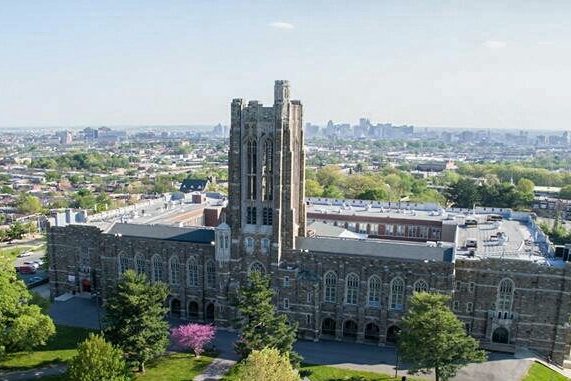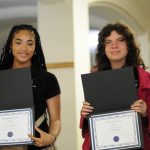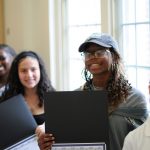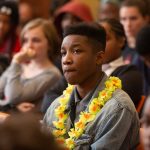“Choose someone you love, respect, or are just interested in learning more about, and ask him or her to tell you a story. Specifically, your question for them is this: Tell me about a moment when a place made a big impression on you, when it did something to shape the person you are today.”
By Richard Fadipe
The person that I am going to be talking about is my older brother, Barnabas Fadipe. When you shape your life around a person, that means that they have a great meaning to your life. We are a foil of each other, but it might seem like we are a double.
Barnabas Oluwasegun Fadipe, also known as Segun, born in Lagos Nigeria is a 24-year-old that is working himself up to become a professional photographer. He moved to the United States at the age of 12 in 2007. As the oldest son but third-born of my mother, he felt like he was the top male figure of the house. He felt this way because our father wasn’t in Nigeria when we was younger. He lived in the United States. So being the oldest boy, he felt like he had to improvise to being an adult even though he was still young. Segun went to Dumbarton Middle School, where he was able to adapt into the typical American life. Where life really hit him that his life was changing was when he became a student at Owings Mills High School. He was the youngest of his class, only being twelve years old as a freshman. Segun said that “I became a very understanding person because other students were doing things to be recognized, either by their friends or by college.” In high school he felt like he was both a dependent because he was a minor but also was independent because in high school he was able to choose the type of path he wanted his future to be like. In physical education he caught the attention of many sports coach because of the quickness of his feet. He wanted to become a soccer player but only because of the family situation of still trying to get comfortable with our new life, he wasn’t able to join the soccer team. But that didn’t stop him because he was still an outstanding student, who was highly loved by his teachers.
That all changed when my parents decided to move across the country to the United States. Not knowing anything about the United States and being from a different country, I had to overcome stereotypes that people thought about Africa/African people and learn how to adapt in a world I did not know. Since I was from Africa, people started making assumptions based on the things that they heard. For example, people would always ask me to speak “African” even though that’s not a language. They would ask me to translate words said in English to my “country’s language” and always ask me to talk just to hear my accent. People would also think that African people were loud and uneducated when in reality, some are pretty quiet and really smart. Along with dealing with the stereotypes, I also had to learn new skills in order to adapt. One skill I had to learn was a new way to communicate. I would often use and say words that people around me would not understand and vice versa. Along with learning a new way to communicate, I also had to learn and get used to their education system. Unlike Segun, I adapted into the American society at an early age. My life really changed when I got into high school. I went to Northwestern High School. At Northwestern, I was one of the top student-athletes being a freshman. Many teachers loved me like their own child because I always made sure that I was a student first before being an athlete. I played football, basketball, and ran track. I fell in love with track because I felt like I was free. I transferred to Baltimore City College. City was a challenge because I had to adapt to the culture and the standards that are expected by many students. City taught me that as long as you “dream it, you can achieve it.”
My brother and I are both foils of each other because we were at different stages when we first got in the United States. I really look up to my brother because he was the main male figure in my life. Even though we are interested in different things, supporting each other makes us even better and focused. He’s always been my biggest supporter of everything I do, especially in my athletic career, while I support him and his goals, including his photography. People might think that we are doubles because we are like twins just because we share the same birthday on October 17. We also look alike, but we always deny it because we do not see it. We are known to be around each other, always being called the “Naija Bros,” which I like a lot because that reminds me of home. Barnabas Oluwasegun is still that Nigerian boy who thinks he’s the top male figure in the household.




